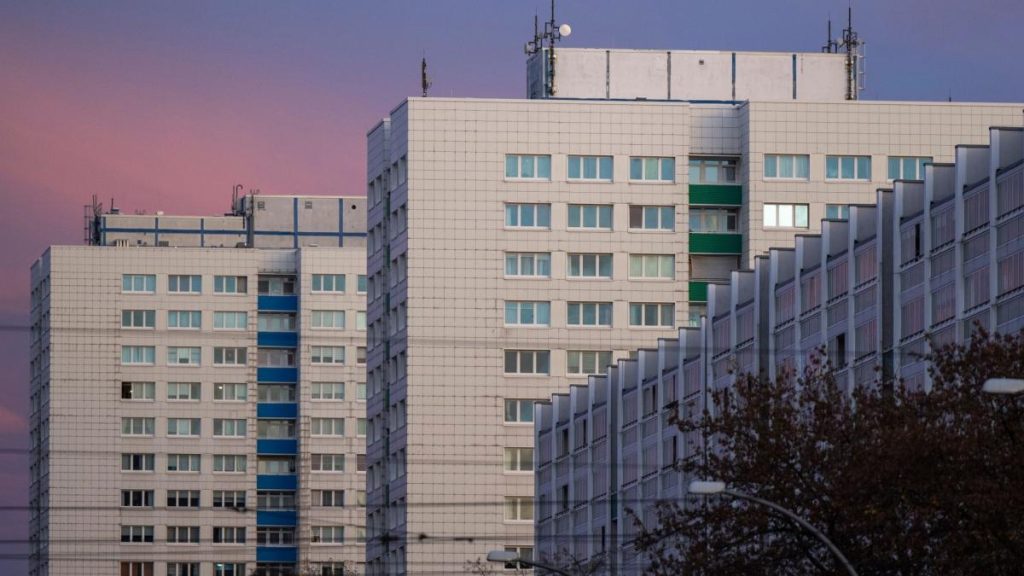The housing shortage in Germany has worsened, with more than 9.5 million people living in overcrowded apartments, according to a response from the Federal Statistical Office to an inquiry from Bundestag member Sahra Wagenknecht. This affects 11.3% of the population, more than one in ten people. The situation has deteriorated slightly from the previous year, with 11.2% affected in 2022 and 10.6% in 2021. Overcrowding is defined as having too few rooms relative to the number of household members, such as not having enough rooms for couples, additional adults, or not having a common area. The issue is particularly prevalent among single parents and their children, with children being almost six times more affected than those over 65.
Wagenknecht criticized Federal Minister of Construction Klara Geywitz for failing to address the issue and called for her dismissal. She also advocated for a new direction in housing policy, including a strict rent cap and increased non-profit housing construction. The rent cap would freeze rents at the levels from two years ago for an extended period. Wagenknecht suggested that the government should build publicly funded housing or support non-profit providers with low-interest loans. The goal is to provide affordable housing options and alleviate the overcrowding issue, particularly in urban areas where overcrowding rates are higher compared to rural areas.
The number of people living in overcrowded apartments in Germany has reached more than 9.5 million, as reported by the Federal Statistical Office in response to an inquiry from Bundestag member Sahra Wagenknecht. This represents 11.3% of the population, an increase from the previous year. Overcrowding is defined as having insufficient rooms relative to the number of household members, such as not enough rooms for couples or additional adults, or lacking a communal area. The issue is prevalent among single parents and their children, with children being almost six times more affected than those aged 65 and above.
Wagenknecht criticized Federal Minister of Construction Klara Geywitz for her failure to address the housing shortage and called for her dismissal. She proposed a new direction in housing policy, including a stringent rent cap and increased non-profit housing construction. The rent cap would freeze rents at the levels from two years ago for an extended period. Wagenknecht suggested that the government should construct publicly funded housing or provide support to non-profit providers with low-interest loans. The aim is to offer affordable housing options and alleviate the overcrowding issue, especially in urban areas where overcrowding rates are higher than in rural areas.
The housing shortage in Germany has worsened, with over 9.5 million people living in overcrowded apartments, according to a response from the Federal Statistical Office to an inquiry from Bundestag member Sahra Wagenknecht. This affects 11.3% of the population, more than one in ten people. The situation has deteriorated slightly from the previous year, with 11.2% affected in 2022 and 10.6% in 2021. Overcrowding is defined as having too few rooms relative to the number of household members, such as not having enough rooms for couples, additional adults, or not having a common area. The issue is particularly prevalent among single parents and their children, with children being almost six times more affected than those over 65.















